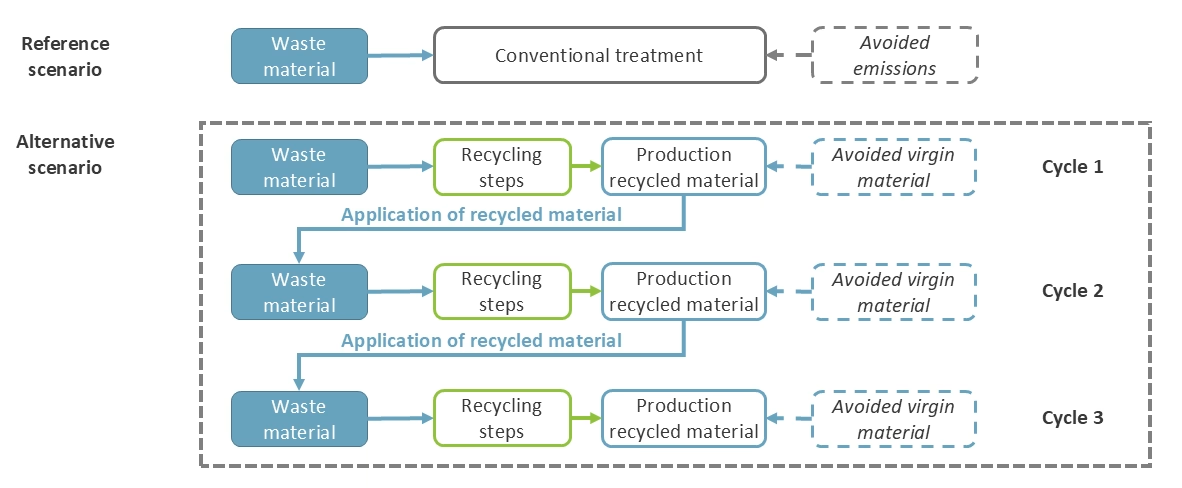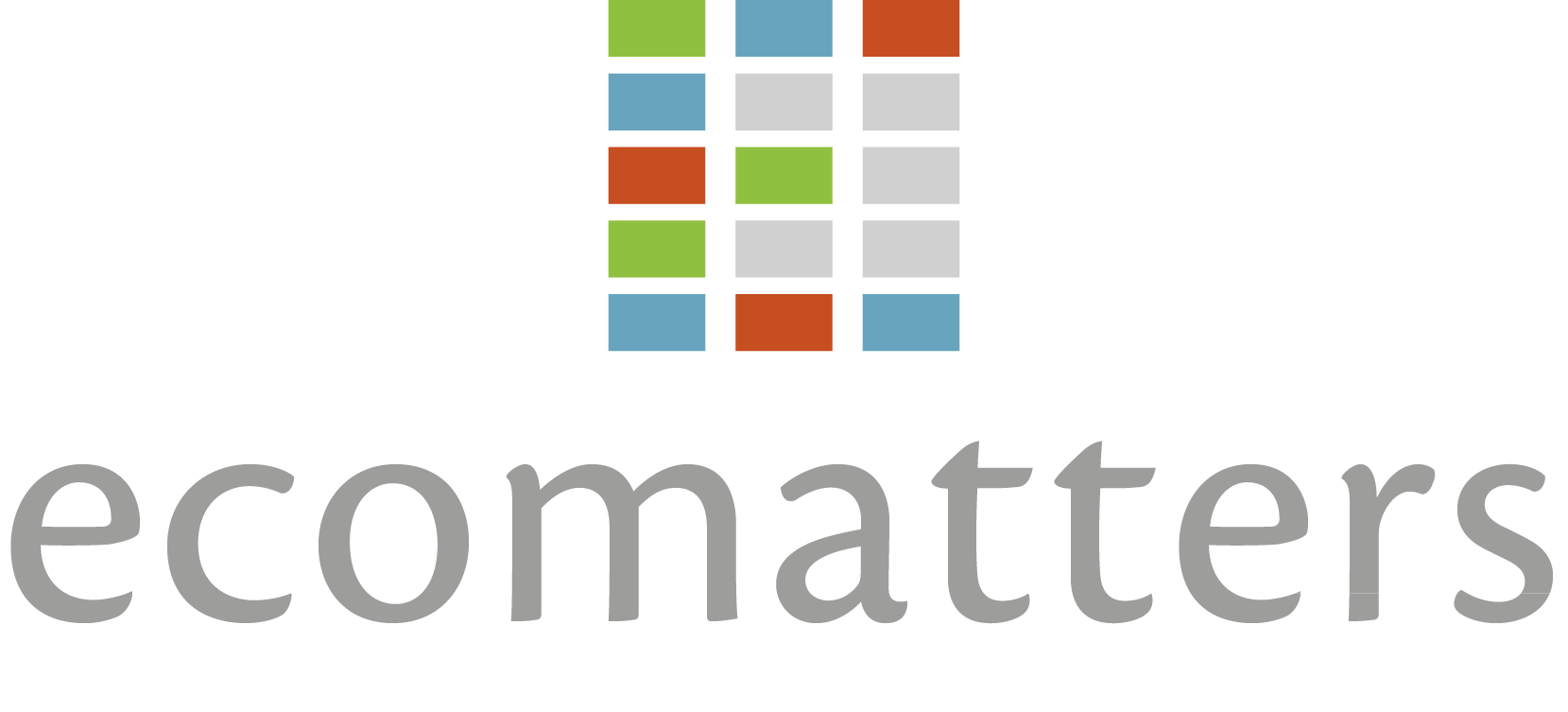Multi-cycle LCA (mLCA) as an essential tool in the Circular Material Plan
What is a multi-cycle LCA?
A multi-cycle life cycle assessment (mLCA) is a environmental impact assessment framework (‘toetsingskader’) required under the Dutch Circular Materials Plan (CMP), the successor to Landelijk Afvalbeheerplan 3. The mLCA is legal required when applying for an environmental permit (‘omgevingsvergunning’) for waste-related activities, such as:
- Waste being sold to a waste processor for reuse or recycling in a specific application;
- A new plant being built to process waste as part of a new initiative; or
- An existing plant substituting virgin material with a waste material.
When and why is an mLCA required?
The mLCA methodology is used when a permit applicant a waste processing method that differs from conventional practice, such as reuse or recycling. . The conventional treatment can be the predefined minimum standard of waste treatment or an alternate reference scenario (provided justification is given).
How does an mLCA differ from a regular LCA?
An mLCA expands on the traditional LCA approach by analysing environmental impacts across multiple life cycles. This typically covers up to three life cycles of reuse and/or recycling. Rather than assessing only the first instance of reuse or recycling of a material, the mLCA accounts for subsequent cycles, considering factors such as material quality degradation, losses during processing, and the avoided use of virgin raw materials.

Figure: Illustration of the system boundaries in a multi-cycle LCA (mLCA)
For this reason, the CMP has adopted the mLCA as a standard method for certain permit decisions providing a fair, science-based method for evaluating and comparing treatment options.
Key points in an mLCA study
A high quality mLCA study, especially in the context of the Dutch CMP, should focus on:
• Clear goal-setting and functional unit: define the reference waste flow being assessed (e.g., the number of cycles, the amount of material, etc.) so it is suitable for both the alternative and the conventional treatment.
• Multi-cycle perspective: extend system boundaries across all relevant cycles and include factors relevant for the multi-cycle system such as: losses during recycling steps, degradation of the material, and the avoided production of virgin material and/or energy.
• Reliable and transparent data: include material flows, energy and water use, transport, non-reusable waste treatment, emissions, and avoided production of virgin primary materials.
• Hotspot analysis: test the robustness of conclusions and identify key drivers of impact in both the reference scenario and the alternative treatment.
• Sensitivity analysis: evaluate the effect of the most significant assumptions, for example by analysing how the different pathways compare in a future scenario with 100% green energy.
When applied rigorously, the mLCA is a defensible, high-value tool for both permit applicants, who can substantiate their case, and competent authorities, who must assess the demonstrated environmental benefits within the application.
In summary
The Dutch Circular Materials Plan includes several instruments as part of its assessment framework. The multi-cycle LCA is one of the tools that supports informed and transparent decision-making on waste processing. In certain cases, it is also a legal requirement for permit applications, ensuring that alternative treatment routes are properly substantiated. By looking beyond a single product cycle, the mLCA evaluates the long-term performance of materials across several rounds of use, recycling, and reprocessing. Where a traditional life cycle assessment (LCA) stops after one cycle of production, use, and disposal, the mLCA provides a more complete picture of a process’s contribution to circularity. In this way, the assessment helps prevent short-term gains that lead to long-term environmental losses.
If you are preparing a permit application or want to explore how an mLCA can strengthen your sustainability strategy under the CMP, Ecomatters can help. Get in touch via our contact form or schedule a call with one of our experts to learn how we can support you.
LCA services
Contact us
Mieke de Jager
Jur Remeijn
Related pages
At Ecomatters, we are experienced in working with companies across…
Makstil AD, a North-Macedonian steel producer, approached Ecomatters to create…
Call with our consultant
Do you want to know more about how we can help? Schedule a call with one of our consultants to ask your questions.





